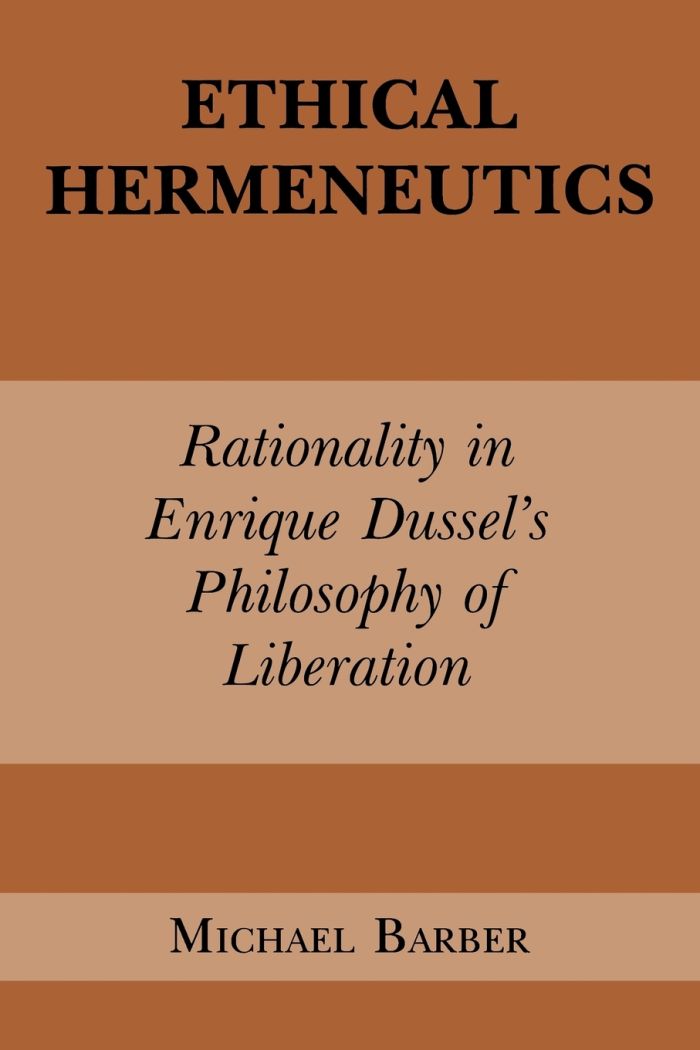Ethical Hermeneutics
Rationalist Enrique Dussel's Philosophy of Liberation

Fordham University Press
This book can be opened with

The essence of Dussel's thought is presented through the concept of "ethical hermeneutics" which seeks to interpret reality from the viewpoint of what Emmanuel Levinas presents as the "other" - those who are vanquished, forgotten, or excluded from existent socio-political or cultural systems. Barber traces Dussel's development toward Levinas' philosophy through his discussion of the Hegelian dialectic and through the stages of Dussel's own ethical theory.
“This trailblazing volume opens an ethical dimension of philosophical hermeneutics and offers a …. well argued, clear, and coherent… introduction to Dussel’s ‘philosophy of liberation.’ ”——Choice
". . .this is a wonderful book and it should be read by all interested not just on Levinas's work but also on the more general question of the future of alterity in an age of philosophical homogenization and economically driven culturally hybridization.——Eduardo Mendieta, Stony Brook University
Michael D. Barber is Professor of Philosophy at St. Louis University and the author of several books on the phenomenology of the social world.

